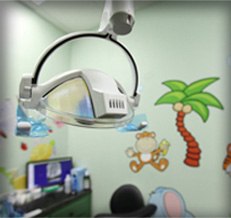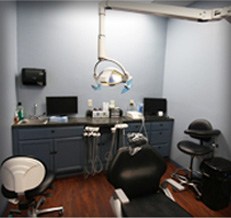 If you’ve experienced advanced tooth loss, you might be hiding your smile when you speak or laugh, or even worse, you may not be doing much smiling at all. However, many patients missing numerous consecutive or nonconsecutive teeth or a full arch find the task of creating a custom tooth replacement plan daunting. This is especially true for those patients with more advanced tooth loss who need a partial or full denture. Keep reading to learn more about traditional dentures and implant supported prosthetics.
If you’ve experienced advanced tooth loss, you might be hiding your smile when you speak or laugh, or even worse, you may not be doing much smiling at all. However, many patients missing numerous consecutive or nonconsecutive teeth or a full arch find the task of creating a custom tooth replacement plan daunting. This is especially true for those patients with more advanced tooth loss who need a partial or full denture. Keep reading to learn more about traditional dentures and implant supported prosthetics.
Traditional Dentures
Traditional dentures are removable tooth replacement prosthetics. They use a custom crafted, gum-colored base material to support numerous replacement teeth. Partial dentures fit snuggly between remaining teeth, and they’re clasped in place with metal clips attached to these surrounding teeth. Full dentures are similarly crafted with a gum colored base that supports a complete row of replacement teeth, but as there are no healthy teeth to support the prosthetic, the base material fits against the gum line creating suction that holds it in place.
Dental Implant Supported Dentures
Rather than relying on healthy teeth or suction for support, dental implants are inserted below the gum line and mimic the supportive function of tooth roots. An implant supported denture is fixed not removable like traditional prosthetics. The dental implant posts also provide necessary stimulation to allow patients to maintain healthy gum tissue volume and jawbone density. Additionally, dental implants restore 70% or more of chewing function compared with about 25% restored with traditional dentures. The dental implant process does take much longer than other tooth replacement solutions.
What’s Right for You?
No dental treatment is right for every patient. When it comes to determining whether a removable or dental implant supported denture is right for you, you’ll need to consult with a trusted dentist. They’ll assess your current state of oral health, any whole body health issues, and help you choose the right tooth replacement plan. You’ll need to consider the following:
- Whether or not you have jawbone density and gum tissue volume adequate to support a dental implant post
- How much time you want to commit to the treatment process
- Past negative experiences with surgical or medical treatments
- Any immune suppressing illnesses you suffer from
Meet the Laith Family Dentistry Team
When it comes to dental care, patients have a lot of questions, and at Laith Family Dentistry, we have your answers. Read our informative dentistry blog to learn more about the services we offer, local events, and more. Contact our San Antonio dental team to schedule an appointment.







